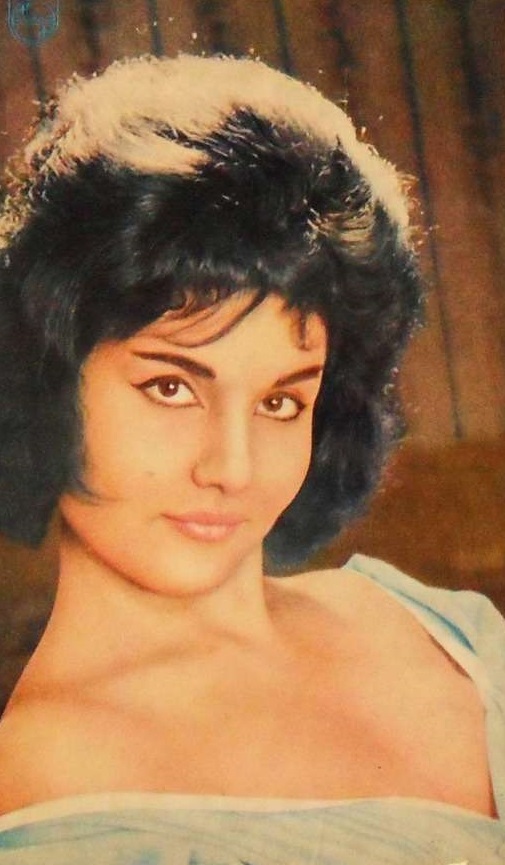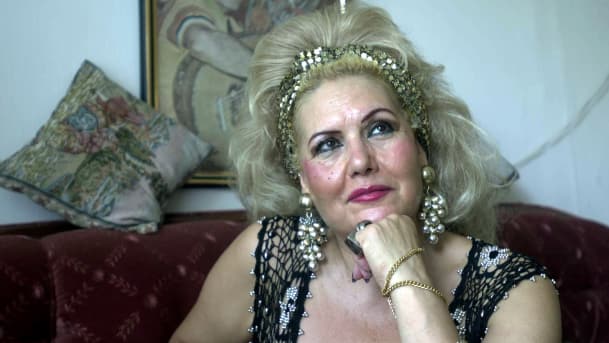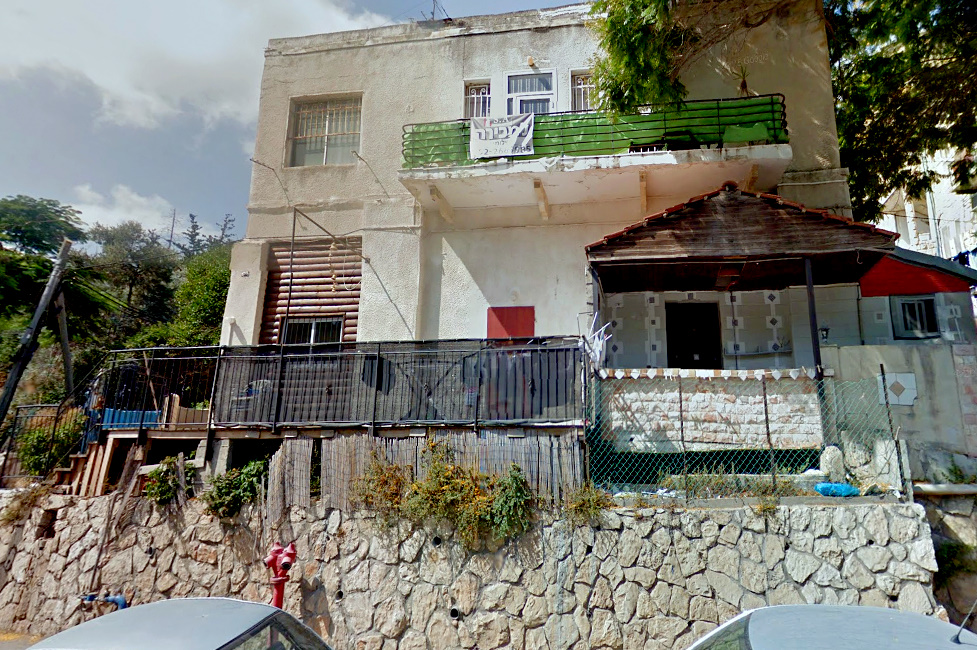Famous Moroccan-Jewish singer Maya Casabianca passed away on December 31 of last year, 44 years after the death of her lifelong love and mentor Farid al-Atrash, who died in Beirut on December 26, 1974.
Born Margot Elmakayis Azran in Casabianca, Morocco in 1940, she and her family emigrated to Israel in 1948. She moved again in the late 1950s to France, where she rose to fame as a singer, gaining renown across France, Lebanon, Russia and South Africa. During the 1960s and 1970s, she was one of the world's most successful and popular singers. She was also famous for being one of Fareed al-Atrash’s lovers and, given the intensity of their affair, she might well have considered this equally important to her legacy. Indeed, she once claimed she could not love any man after him. After living an extravagant celebrity life in Beirut with al-Atrash, she would come to settle in a modest house in Haifa's German colony in Israel, far removed from her former life of glitz and glamor. She left this world in a similar manner, celebrating New Year’s Eve with a small circle of close friends and loved ones in her modest home. Casabianca was buried in the Tabor village of the lower Galilee, where her only daughter resides.
Sadly, many artists and singers have not paid tribute to Casabianca and her accomplishments. Not only did her funeral pass in silence, but her legacy is largely overlooked by today's musical artists. Few news outlets in Israel and internationally reported the singer’s passing, despite her standing as one of the premier singers of her generation. On the day of her passing, her daughter wrote: “Today the French-Israeli singer Maya Casabianca passed away. Today her life's journey came to an end. Today her singing voice fell silent. Today her heart stopped beating. And today she rose to the heavens even as she was placed underground, for she now joins the people of Merom. I am sure that my mother will carry on living, and will keep on singing the song of life”.
At the age of eight, she moved to Israel with her aunt while the rest of her family stayed in Morocco. By age 14 she and her family emigrated to Paris, where she started her musical career.
While the exterior of her home on El Naby Street in Haifa could be described as modest, the interior is anything but. The walls are decorated with photos of her with Farid al-Atrash, her concerts, al-Atrash's performances, and photos of Lebanese celebrities and politicians.

MAYA AND THE FAMOUS MUSICIAN FARID AL-ATRASH
When I asked Maya about the Al Atrash’s song “Ya Gamil, Ya Gamil, Ya Gamil”, she began singing enthusiastically and added: “Farid al-Atrash wrote this song for me. Yes, Farid himself!” She went on, saying, “when I was eleven, I was one of his millions of fans. I used to listen to his records while singing and dancing along. My favourite songs of his were 'Weyak', 'Benady Alek' and 'Ya Zahra Fi Khayaly', as well as others.”
Her father used to organize concerts, and so when she was fifteen he gave her the opportunity to sing in one. During that concert, the president of Phillips Records, Jack Billet, heard her and offered her a recording contract. Her father immediately agreed and she was signed by the record label under the stage name, “Maya Casablanca”, which was thought would garner mass appeal. On October 1960, the president of Phillips organized a Paris concert for Maya in which he invited many artists, singers, actors, art connoisseurs and upper-crust members of society. The concert reportedly drew attendees in the thousands. Casabianca added that she was astonished at the number of celebrites she saw in the audience at her first concert. She was especially surprised that many of these upper crust individuals came to see a singer who had a modest and, in many ways, impoverished upbringing.
Tunisian-German film director Max Berger was in the audience and at the time he was directing a film starring Farid al-Atrash. He brought the musician along with him to the concert. Maya was flabbergasted when she discovered that her idol was going to watch her debut and so she made sure that she performed at her best so as to not disappoint her hero. She wanted Farid to be impressed by this young girl who had seemingly come from nowhere. Luckily she was able to do just that; not only was Farid impressed, but so were the other celebrities and VIPs in the audience. After the concert, Berger introduced Maya to Farid, who told her, “I wish you the best of luck in this path you've decided to take, this path of art.” Maya would later recount, “I can’t say it was love at first sight, but my heart started pounding when I saw before me the handsome star of the East, whose songs I listened to religiously for hours during my childhood and who I always dreamed of meeting. The man of my dreams was wishing me good luck and at that moment I told myself: “My God, this is too much to take in. This is the musician who introduced me to the world of music and art, and he is now one of my fans.”
“The end of that concert marked a new chapter in my life. My dressing room was filled with many bouquets from fans, one of which had a card that said: 'From your fan, Farid,'" Maya added.

THE RAHBANI BROTHERS, SABAH AND DAMASCUS CASINOS
Despite the fact that Maya had tasted fame and her songs began appearing across radio stations in France, the Soviet Union, Syria and Lebanon, what she treasured most from her short-lived celebrity was her relationship with Farid al-Atrash. As a schoolgirl listening and dancing to his songs, she never imagined that she would someday be sipping wine with the singer, let alone that he would one day be passionately kissing her hand. She would write the details of their relationship in her autobiography: “He and I”, published in 2001.
In the introduction to her autobiography, she wrote “This is a story about a young girl who was a passionate singer, became famous and spent time with famous and important individuals during the late 60s and early 70s. She enamoured many men with her beauty who wanted nothing more than to stand there by her side, but she could not settle for anyone but the person who had forever captured her heart, the famous and influential musician Farid al-Atrash”. In the book she discussed their affair, and other aspects of their relationship for the first time. On the question of why she never married Farid, she confesses that she wanted to marry him and proposed the idea many times. He was adamant on remaining a bachelor, however. Nevertheless, Casabianca insisted that nothing was missing in her life except for a stable marriage with a warm and loving husband. Outside of romance, she wrote about her love for Beirut and its people. This love was fully reciprocated, as many in Beirut listened to her songs, sang them among themselves, and even translated the French lyrics. Some would even name their newly born daughters after her.Maya recorded 320 songs, most of which were composed by Farid Al Atrash, but she is only fond of 30 of them.
Maya recorded 320 songs, most of which were composed by Farid al-Atrash, but she is only fond of 30 of them.
Casabianca had many fans all over the Arab world, especially in Syria and Lebanon. Moreover, many Arab leaders would attend her concerts, often sitting in the front row. It should be noted that most of her Arab fans believed she was French and Christian. She would hold concerts in the biggest hotels in Lebanon and in major casinos across Beirut and Damascus.
Fayrouz and her husband Joseph Shaheen as well as the Rahbani Brothers attended one of her concerts in the Morocco Casino in al-Hamra Street in Beirut. They cheered her on and encouraged her in her career. At the same concert, Maya also met with Lebanese vocalist Sabah and the two women hit it off instantly. Indeed, both singers once performed together on stage, much to the audience’s delight. After the concert, dozens of fans thronged the stage attempting to hug her. Suddenly, a strongly built man pushed away the crazed fans and hustled her into a waiting car outside. After most of the fans left, he explained that he had been asked by Farid al-Atrash to bring her to him.

HATIKVAH
Up until this moment in Maya’s life, most of her Arab audience was unaware of her Jewish identity. She chose to unveil this explosive secret at a concert held in the Soviet Union. This concert was one of the biggest of its kind and counted Soviet leader Brezhnev among the audience. To reveal her identity she decided to sing the Israeli national anthem Hatikvah, written by the Jewish Eastern European poet Naftali Herz Imber.
This moment marked a new chapter in her life. Word spread quickly among Arabs that Maya was not a French Christian, but rather a Jew who migrated from Israel to France. Shortly after the concert, Syrian intelligence began pursuing her but, thanks to help from friends, she was able to travel safely from Syria to Lebanon and from there to Israel via Cyprus.
The aftermath of the Hatikvah concert did not bother Maya, as she wished to live the rest of her days in Israel. Still, she was haunted by the fear of losing her fame and fans. Her fears proved to be justified. Maya spent the rest of her career singing in small concerts for small audiences, mostly consisting of Mizrahi Jewish immigrants new to Israel from Egypt, Libya,Morocco, and elsewhere. She had a relationship with Bieber Dawlo, the head of Monte Carlo broadcasting and her agent, and together they had a daughter who would be her only child. The two never married, and Maya lived far from her daughter, since she did not want to leave her childhood home Haifa. She remained in her Haifa residence until her death. Her friends claim that she spent the rest of her life talking about her love for Farid al-Atrash.
Their relationship was brought to come to an end by the infamy that followed Maya following the “Hatikvah concert”. The last time she met Farid was in the 1960s before she left Beirut for good. On the morning of their last day together she wrote: “Farid was holding my coat.is hands were shaking but he tried to hide it from me. My hands were also shaking so he reached out to hold them. At that moment I burst out crying, but he dried my tears and said: ‘This is not the end, but rather the beginning. If I could, I would be by your side forever.’”
After her relationship with al-Atrash, Maya refused to marry, despite many suitors. She would also wait for and watch all of Farid’s films on the Arabic TV stations and would bitterly cry whenever he appeared on screen. She would also come to miss all the Lebanese celebrities she met over the years, such as Sabah, Wadih El Safi, Elias El Rahbani and Simon al-Asmar. She also longed for the Lebanese audiences who would loudly cheer for her whenever she sang Ave Maria. She recounted sometimes fantasizing about going back to Lebanon where she hoped she would be warmly welcomed back by her fans. She even records thinking to herself: “Laila Morad was also a Jew. It’s not my fault I was born Jewish.”

She had one daughter with her fiancé and agent. The two lived together for five years but never married. “I tried moving on and lived with my fiancé, but after five years the relationship couldn’t work and I left him," she explained.
Her life ended much like a romantic tragedy, and she passed away exactly 44 years and 4 days after Farid al-Atrash’s death.
Her autobiography ended with a passage describing the void in her life left by Farid al-Atrash:
"After Farid’s death, my life was filled with nothing but sadness. Am I not destined for a new chapter in my life? A voice inside me keeps telling me to move on and live my life. I will not surrender to despair and dark thoughts, which took the lives of many artists and musicians before me. I was raised from a young age to have strength and have faith, for my father told me that our lives are a gift from God that can and will be taken away at any moment, so we have to cherish this gift and keep on living. As for my love for Farid, our love is one that transcends life. God has blessed me with many more years of life after him, but when my time comes, we will be reunited in the world beyond this one. But for now, he still has to wait."









